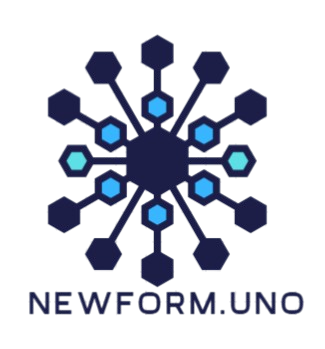Understanding the IT Landscape
The Information Technology (IT) field encompasses a wide array of specializations, each catering to different interests, skills, and career aspirations. As technology continues to evolve, the demand for professionals in these areas rises correspondingly. Some prominent IT specialties include software development, cybersecurity, data science, and network administration, each playing a vital role in the functioning of modern organizations.
Software development is primarily focused on designing, building, and maintaining applications and systems. Developers utilize programming languages such as Java, Python, and C# to create software that meets user needs. This specialization requires a blend of problem-solving and analytical skills, along with creativity to innovate and improve existing solutions.
In contrast, cybersecurity is dedicated to protecting systems and data from cyber threats. Cybersecurity professionals identify vulnerabilities, implement security measures, and respond to incidents. Given the rising frequency of cyberattacks, expertise in this area is increasingly sought after, making it a highly strategic specialization within the IT landscape.
Data science has emerged as a critical field, given the explosion of data generated daily. Data scientists analyze large datasets to extract insights that drive decision-making processes in organizations. Proficiency in statistical analysis, machine learning, and data visualization tools is essential in this role, as is a solid understanding of the business context behind the data.
Additionally, network administration focuses on the management and maintenance of computer networks, ensuring seamless communication and operation within an organization. Network administrators monitor network performance, troubleshoot issues, and implement security protocols to protect against unauthorized access.
The interplay between these specialties is notable; for instance, a software developer might need to collaborate with network administrators to deploy secure applications effectively. Understanding the differences and overlaps among these specialties can guide individuals in selecting the path that aligns with their interests and abilities. With the job market continuously evolving, maintaining awareness of industry demands is crucial for aspiring IT professionals.
Setting Up Your Learning Framework
Creating a personalized learning framework is crucial for anyone embarking on an IT specialty journey. The first essential step is to identify specific learning goals that align with your desired IT career path. Goals should be both realistic and measurable, allowing you to track progress effectively. For instance, if you aim to become proficient in web development, objectives can include mastering HTML, CSS, and JavaScript within a certain timeframe.
Once your goals are established, selecting the right resources becomes imperative. The landscape of learning materials is vast, encompassing online courses, books, and tutorials. Platforms such as Coursera, edX, and Udacity offer various courses in specific IT subjects, while textbooks provide in-depth knowledge. Additionally, websites like Codecademy and freeCodeCamp focus on hands-on programming experience, which is beneficial for practical skills development. Choosing resources that fit your learning style—whether visual, auditory, or kinesthetic—will enhance retention and understanding.
After identifying resources, it is important to establish a realistic study schedule. This schedule should integrate consistent study sessions that align with your availability and learning pace. Incorporating breaks is essential to maintain focus and motivation. Using tools like Google Calendar can help organize your study times and keep you accountable.
Furthermore, it’s vital to engage in hands-on projects throughout your learning process. Building real-world applications or contributing to open-source projects can significantly reinforce your skills. Platforms like GitHub provide opportunities to collaborate with others and share your work. As you engage in these practical experiences, seek feedback and iterate on your projects, as this will deepen your learning and prepare you for real-world scenarios.
Establishing a solid learning framework, composed of clear goals, appropriate resources, and practical experiences, will not only mitigate feelings of overwhelm but also equip you with the skills necessary to excel in your chosen IT specialty.
Building a Strong Foundation in IT Skills
Embarking on a journey in the Information Technology (IT) sector requires an understanding of foundational skills that serve as the bedrock for all specializations. Aspiring IT professionals must acquire a diverse set of competencies, including programming languages, database management, networking fundamentals, and cybersecurity principles. Mastering these core skills not only provides a solid groundwork but also enhances one’s adaptability in an ever-evolving industry.
Programming languages are pivotal in IT, providing the essential framework for software development. Beginners should start with widely-used languages such as Python and JavaScript, which are user-friendly and highly versatile. Understanding basic syntax, control structures, and data types lays the groundwork for tackling more complex challenges as one progresses. Resources are ample; numerous online platforms offer interactive tutorials and coding challenges that can aid in reinforcing these concepts.
Networking fundamentals are critical, as they allow individuals to understand how different devices communicate and exchange information. Grasping concepts such as the OSI model, IP addressing, and routing is integral. Beginner-friendly resources, including online courses and certification programs like CompTIA Network+, can provide structured pathways to build expertise in networking.
Additionally, cybersecurity knowledge is increasingly crucial, given the proliferation of cyber threats. Familiarizing oneself with basic principles of cybersecurity, including encryption, firewalls, and threat detection, prepares learners for the challenges in protecting data integrity. Engaging with real-world applications, such as participating in capture-the-flag (CTF) competitions or setting up personal home labs for practice, offers practical insights into theoretical knowledge.
Throughout this learning journey, maintaining a growth mindset is imperative. Embracing challenges, persisting through difficulties, and viewing setbacks as learning opportunities cultivate resilience. As aspiring IT professionals develop their skills, they enhance their capacity to adapt to new technologies and approaches, ultimately strengthening their readiness for successful careers in various IT disciplines.
Networking and Career Progression in IT
Networking plays a crucial role in advancing one’s career in the information technology (IT) sector. By building a robust professional network, individuals can unlock numerous opportunities for collaboration, mentorship, and career growth. Engaging with peers and industry professionals allows for the exchange of ideas and valuable insights, which can help in navigating the complexities of IT specialties.
Platforms like LinkedIn are instrumental in establishing and nurturing connections within the IT community. Users can showcase their skills, titles, and project experiences, attracting like-minded professionals and potential employers. It is essential to maintain an active presence on such platforms by sharing relevant content, engaging with posts, and joining industry-specific groups to foster professional relationships. Connecting with mentors is another effective strategy. Experienced professionals often have a wealth of knowledge and guidance to offer, serving as invaluable resources for career development.
Participating in tech communities or forums further enhances networking prospects. Such platforms provide opportunities to engage in discussions, seek advice on industry trends, and find support for technical challenges. Events, conferences, and online webinars also present avenues for face-to-face interactions with industry leaders and peers, facilitating meaningful connections that can influence one’s career trajectory.
To complement networking efforts, crafting a standout resume is critical. A well-organized, concise resume that highlights key achievements, technical skills, and relevant experiences can make a significant difference when applying for positions. Preparing for interviews is equally important; candidates should practice common interview questions while demonstrating their technical expertise and problem-solving abilities.
Ongoing skill development is vital in the fast-paced tech industry. Pursuing certifications or engaging in personalized learning helps professionals remain competitive. By continuously evolving their skills, IT specialists can adapt to emerging technologies and diverse roles, ensuring long-term career success.


No responses yet